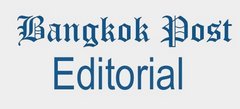A government plan to revamp medical welfare management system is a welcome move, though it needs to be approached with some caution. The plan was revealed by Phirom Kamonratakun, as chairman of a subcommittee on public health reform, saying that it is aimed at ensuring that every citizen has equal access to the privileges accorded by the three healthcare funds, namely universal healthcare coverage (UHC), known as the 30-baht gold card, which covers 48 million people; the welfare fund for civil servants; and the workers' welfare system under the Social Security Fund (SSF).
"I can assure you the revamp will not curb the rights of patients," he told a seminar which was part of the National Health Assembly's 11th meeting, where various stakeholders discussed the future of the country's public health sector. It was aimed at finding ways to improve the quality of health care in Thailand, finance the rising cost of health care in an ageing society, and streamlining the country's healthcare funds.

The expert's statement coincided with assurances by Prime Minister Prayut Chan-o-cha that the government will not scrap the UHC, as was previously feared.
In fact, Gen Prayut appeared to adopt a much softer stance, if not make a U-turn, on the healthcare coverage scheme which was established by the Thaksin Shinawatra administration. While talking to locals in Bung Kan during a mobile cabinet meeting on Wednesday, the prime minister praised the UHC for benefiting its recipients.
"The scheme will be further improved," the premier said.
Previously, Gen Prayut made no attempt to hide his annoyance about the scheme, which he saw as "big burden" on state coffers. He also insisted on the need to introduce a "co-payment" system to the UHC to ease the state's burden. The idea, however, drew heavy criticism.
In fact, the country's UHC has won global recognition. Earlier this year, the World Health Organisation (WHO) praised Thailand for being a good model to learn from in terms of national health security.
It should be noted that the concerns of the government over the financial burden are just one aspect of the UHC wrangle. It is well-known that the issue is a power game as some bureaucrats at the Public Health Ministry are not happy that they have no control over the health budget, the administration of which has been transferred to the National Health Security Office.
At this stage, there are no details about the revamp plan raised by Dr Phirom during the seminar. But there are positive signs given that the expert compared the three funds and mentioned the need to streamline them. It's well known that of the three welfare systems, the civil service welfare payment per head is the highest. Health activists have criticised the payment structure as unfair.
According to the Prachatai news website, the government in 2017 allocated a 126-billion-baht budget to the UHC which covers 48.8 million people, or 2,592 baht per head; 63 billion baht for 4.97 million civil servants, or 12,676 baht per head; while the SSF was given 48.5 billion baht for 14.47 million workers, or 3,354 baht per head.
The figures show that a revamp is needed to strike a balance in the three welfare systems.
And in pursuing the revamp, the government, and the Phirom panel in particular, should ensure public participation and inclusiveness, so the issue is comprehensively and constructively debated and the goal, "the guarantee of patients' rights", can be achieved.
Extensive debate is required if co-payments or user charges are to be applied to the systems and, if so, how they should be processed. At the same time, reform should take into account the need to maintain the original concept of the UHC that underlines preventiveness, and fundamental health care aiming to holistically promote health. These concepts will contribute to the cost-effectiveness of the scheme.
On top of that, those involved in the revamp should be aware that streamlining the three schemes should address not only efficiency but also fairness in health care.
